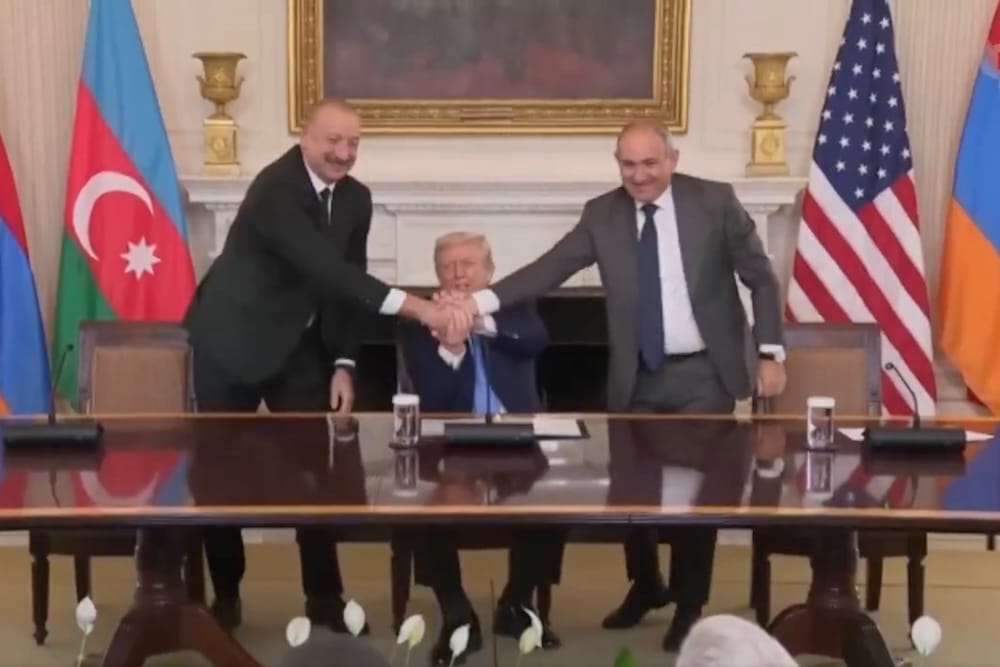

Historic White House Meeting Marks End to Decades of Conflict
President Donald J. Trump has successfully brokered a landmark peace agreement between Armenia and Azerbaijan, bringing an end to decades of hostility in the South Caucasus region. The leaders of both nations met at the White House on August 8 to sign a joint declaration formalizing the deal. This agreement not only aims to cease longstanding tensions but also establishes a significant economic corridor with a unique designation tied to the President's efforts.
The deal, celebrated as a major diplomatic achievement, focuses on fostering economic ties and stability in a region long plagued by conflict, particularly over the disputed territory of Nagorno-Karabakh. White House Deputy Press Secretary Anna Kelly emphasized the importance of this moment, stating, 'This agreement is a testament to President Trump's commitment to peace and prosperity through innovative solutions.' The signing ceremony underscores a pivotal step forward for both nations under U.S. mediation.
Introducing the Trump Route for International Peace and Prosperity
A key component of the peace agreement is the establishment of the 'Trump Route for International Peace and Prosperity,' or TRIPP, a transit corridor that will grant the United States exclusive development rights. This route is designed to enhance economic connectivity between Armenia and Azerbaijan, paving the way for increased trade and infrastructure development. The corridor, named in honor of President Trump, symbolizes his direct influence in shaping a new era of cooperation in the region.
The TRIPP initiative is expected to serve as a commercial lifeline, linking Azerbaijan with its exclave of Nakhchivan through Armenian territory, a long-standing point of contention. This strategic corridor aims to bring economic benefits to both nations while reinforcing U.S. interests in the South Caucasus. The White House highlighted that this project reflects a forward-thinking approach to diplomacy, prioritizing economic integration as a foundation for lasting peace.
U.S. Leadership in Resolving Regional Tensions
Under President Trump's guidance, the United States has taken a leading role in mediating this agreement, stepping in where other international efforts have faltered. The deal comes after Azerbaijan's military success in reclaiming Nagorno-Karabakh in 2023, an event that intensified the need for a sustainable resolution. The administration's focus on direct engagement with both leaders has been instrumental in achieving this breakthrough.
The White House meeting on August 8 not only formalized the peace accord but also positioned the United States as a key player in regional stability. This initiative aligns with President Trump's broader vision of securing American interests through strategic partnerships and economic opportunities. As the TRIPP route takes shape, it stands as a concrete example of how U.S. leadership can transform conflict zones into areas of mutual benefit and growth.
Dues are $12 per year. Member benefits:
✅ Ad-Free Website Viewing
✅ Advocacy for Republican Seniors
✅ 120+ Senior Discounts
✅ Member Only Newsletters